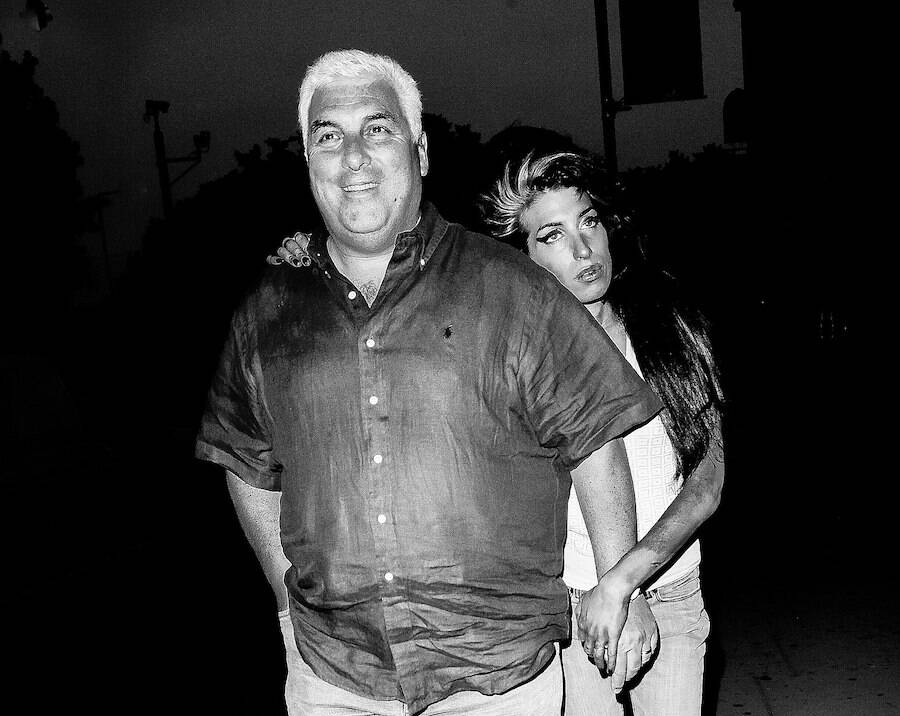Amy Winehouse: An Enduring Influence
Amy Winehouse, a remarkable British soul singer, captivated audiences around the globe with her soulful blend of jazz, pop, and soul. Her music, including the iconic “Rehab,” resonated deeply with millions. However, behind the scenes, Amy faced a turbulent battle with addiction.

Tragically, her addiction ultimately shortened her life as she succumbed to alcohol poisoning at the tender age of 27. In this article, we will delve into the poignant tale of Amy Winehouse and explore the factors that contributed to her untimely demise.
The Early Years: A Talent Unveiled
Amy Winehouse was born on September 14, 1983, in London. Even from a young age, there were clear signs of her extraordinary musical talent. Growing up in a supportive, middle-class family, Amy nurtured dreams of becoming a beloved musician.

At just 14 years old, she began writing songs and formed a hip-hop group with her friends. Her talent soon caught the attention of the music industry, and by the time she was 19, Amy had signed her first record deal. Her debut album, “Frank,” received critical acclaim, solidifying her as a rising star. But as she scaled the heights of fame, her struggles came to the surface.

The Troubled Path of Addiction
As Amy Winehouse’s star ascended, so did her battle with drugs and alcohol. Her relationship with Blake Fielder-Civil further fueled her addictive tendencies. Unfortunately, her journey was marred by public arrests, drug possession charges, and incidents of assault. The media kept a close eye on her every move, documenting her emotional and physical turmoil.
The Unraveling

Despite the success of her album “Back to Black” and her triumph at the Grammy Awards, Amy Winehouse’s personal life continued to unravel. Legal troubles prevented her from attending the prestigious ceremony, leaving a void in her accomplishments.
Her father revealed the extent of her addictions, exposing her struggles with crack cocaine abuse and emphysema. Amy battled alcoholism, drug addiction, and even developed an eating disorder. Her performances suffered as she grappled with intoxication, often canceling shows or struggling to deliver due to her fragile state.
The Tragic Conclusion

In her final months, Amy’s life spiraled rapidly downward. A disastrous performance in Belgrade, Serbia, marked a turning point. She faced challenges with alcohol withdrawal and anxiety, but her lack of commitment to sobriety hindered her progress.

Amy’s last conversation with her physician revealed her desire to continue living, but her addiction proved insurmountable. On July 23, 2011, she was discovered lifeless in her bed, a casualty of alcohol poisoning. At the time of her death, her blood-alcohol level exceeded the legal driving limit by over five times.
The Investigation and Beyond
Amy’s tragic passing prompted scrutiny and a search for answers. Many scrutinized her father, Mitch Winehouse, for not doing enough to aid her recovery. Her ex-husband, Blake Fielder-Civil, also faced blame for introducing her to drugs.

The media, often sensationalizing her struggles, also encountered censure. Nevertheless, the ultimate culmination of these factors resulted in Amy Winehouse’s heart-wrenching fate.
Amy’s legacy lives on through her music, serving as a poignant reminder of the catastrophic impact of addiction. While her inner demons ultimately conquered her, it is essential to remember that Amy Winehouse was not solely a troubled star; she was a human being.
As we reflect on her undeniable talent, let us also recognize the significance of compassion and support in facing the challenges of addiction. Amy’s story teaches us that even the most extraordinary individuals can fall victim to their battles, highlighting the importance of empathy and understanding.





